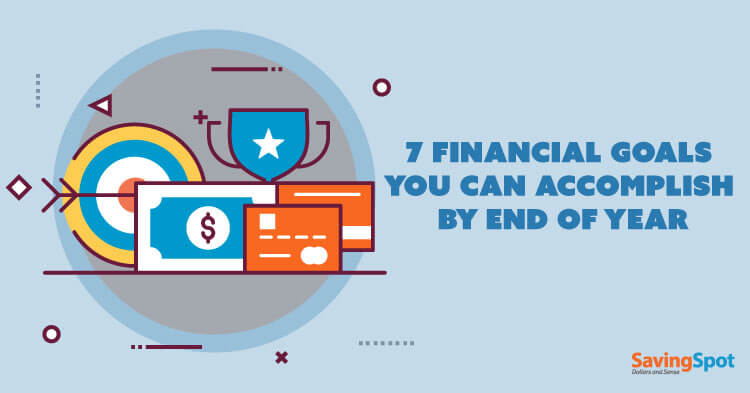Budgeting isn’t always the first thing that comes to mind when considering fun family activities, but real-life financial education can help young people make smart choices for a lifetime. Plus, you can actually make it enjoyable!
Creating and reaching short-term financial goals as a household can help increase the likelihood of your success while you work together as a team. Whether you’re looking for ideas or want to check off all the accomplishments, we’ve gathered a list of helpful short-term goals to achieve as a family.
1. Make a Fun Savings Goal
Motivation can drive us to succeed, so why not start with a fun goal? It’s a great way to remind ourselves and the family why budgeting is so important to our financial success.
Begin with a rewarding savings goal you can enjoy with family and friends, like an affordable day out or weekend trip. Remember to budget for your savings goal, and don’t go overboard with the reward — it’s better to set small, periodic rewards to help motivate you than use a lot of money all at once.
Once you decide on a goal, estimate the time necessary to accomplish it. If possible, set aside some money from your entertainment budget to use towards this goal.
Estimated time: Less than 1 hour
2. Start or Increase Your Retirement Savings
If you’re already saving for retirement, you’re off to a great start! Now is a great time to calculate your retirement fund and determine whether you’ll have enough to retire comfortably. Contact your financial institution if you need to increase your savings rate.
If you don’t have a retirement savings account, open one and start saving right away. Many employers offer retirement accounts such as a 401(k) to help you save for retirement and/or provide related financial assistance. You can also pursue an Individual Retirement Account (IRA) or Roth IRA if you don’t have access to an employer-sponsored plan or prefer a different account. Additionally, you can open certain types of retirement accounts for kids of any age. No matter which method you choose, it’s important to start saving sooner rather than later.
Estimated time: 1 to 2 hours
3. Start a Debt Elimination Plan
If you have debt, reducing or eliminating your balance can help save money in interest. While you may not be able to completely eliminate your debt in a short amount of time, you can research and start a debt repayment plan that works for you in one afternoon.
Estimated time: 2 to 3 hours
4. Create an Emergency Financial Kit
Emergency financial kits will vary widely depending on your specific situation, such family and/or marital status, but all households should establish an emergency plan to help safeguard your money and important effects. Keep your family’s specific needs in mind for your personalized emergency kit. Financial kits may include information and documents such as:
- Bank account information
- Digital account information and passwords
- Insurance paperwork
- A list of emergency and financial assistance in your area
- Legal paperwork, such as wills, trusts and other documents
- Other important personal records, like birth certificates and Social Security cards
If possible, keep your kit secured in a locked drawer or safe in your home. Label the kit and/or create an itemized list of its contents.
Estimated time: Several hours
5. Grow or Start Your Emergency Savings Fund
If you don’t have an emergency savings fund, open a separate savings account to put aside cash for unplanned expenses. If you’re starting with $0, make a savings goal of $500 and build it up from there. If you already have an emergency savings fund, aim to increase your savings rate.
Automatic bank transfers, splitting your paychecks and/or utilizing a high-interest savings account can help increase your emergency fund without much effort.
Estimated time: A few weeks
6. Reduce Your Household Spending
Whether you already have a budget in place or are just starting your financial plan, you can likely still find ways to reduce your expenses as a family. Periodic financial reviews can also help you monitor your goal progress and keep your budget in check. You can save time with a budget tracker or banking app that automatically categorizes your spending.
Here are a few simple ways to lower your spending as a family:
- Avoid restaurant surcharges by learning how to cook your favorite meals at home.
- Take advantage of free activities and resources in your area.
- Embrace no-spend days or weeks to meet a savings goal.
- Use public libraries in place of subscription-based media and entertainment.
Estimated time: A few weeks
7. Improve Your Credit Score
A good credit score has multiple advantages beyond the financial impact — your credit score can help you land a job! No matter where you currently stand, it’s worth the effort to raise (or maintain) your credit score.
Paying bills on time and reducing your credit utilization are two of the best ways to improve your rating. Your three-digit score will fluctuate over time, but it may take a few months for it to reflect major changes. Keep an eye on your score to measure your progress.
Estimated time: A few months, depending on your credit score and payment activity




